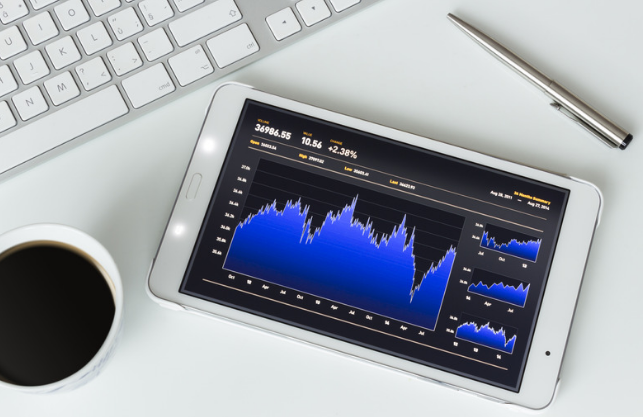Table of Contents
Since ancient times people have been investing their money in one or the other ways to build a profitable income source and earn wealth. It is undeniable that all kinds of investment portals bring along a degree of risk with them. Still, on the other hand, some are significantly less volatile and can protect themselves from massive economic blows. Therefore cryptocurrency and the stock market have emerged as the best investment choice in the 21st century. And when something becomes best of the best, it creates a situation of great debate about itself. Hence the following article is a complete guide and a form of discussion on cryptocurrency versus stocks.
Stocks signify a percentage of modern business and stand as a firm’s value and alter their price range based on the institution’s performance in the market. In contrast, cryptocurrency, a digital asset, made its debut in 2009 via popular bitcoins. The main feature of cryptocurrency is that it can be stored and traded digitally through your electronic devices. A crypto currency’s demand in the market, supply, and adoption vary its value.
For a long time, people were subjected to stock market investment. Still, the current emergence of cryptocurrency and bitcoins price has gained more popularity, and it has re-directed many investors to try their luck in the cryptocurrency market. Nevertheless, it does not mean that cryptocurrency is a safer means of investment. It is a bitter fact that cryptocurrency is very volatile and brings potential risks along with it. In May 2021, Bitcoin almost touched the death cross by reaching a record value of €50,000.
 The stock market is no different. In the initial days of the pandemic, S and P 500 had lost more than ⅓ of its value. Hence for those investors who are still deciding whether to invest in stocks or cryptocurrency, this question remains a mystery forever. We Aimed to decrypt some of the hidden differences and similarities between cryptocurrency and stocks to help the investors choose better.
The stock market is no different. In the initial days of the pandemic, S and P 500 had lost more than ⅓ of its value. Hence for those investors who are still deciding whether to invest in stocks or cryptocurrency, this question remains a mystery forever. We Aimed to decrypt some of the hidden differences and similarities between cryptocurrency and stocks to help the investors choose better.
The similarities between cryptocurrency and stock investment
Since its evolution, cryptocurrency has been using a digital mode for its function. In contrast, the stock market has an entirely different story. In the beginning, financial guides and brokers used the money taken from investors and used it to add it to the stock market but with the growth of the stock market and evolution of new digital transformation technologies stock market underwent a complete transformation. In the modern era, stocks and cryptocurrency are accessible through a digital exchange, Applications, brokerage account, or other online platforms. In addition to this, they also offer almost a similar type of user experience in terms of trading options, layout, and order book-based liquidity Mechanism. Bitcoin Loophole is one of the reliable platforms for trading.
Retail trading options present new parts for general trading orders like the limit order, market order, and stop order. Although both cryptocurrencies and stocks may look the same from the buying and selling point of view, they have various hidden differences that need to be noted.
The differences between cryptocurrency and stocks
Cryptocurrency and stocks are both types of investments but individually have certain qualities are that create the differences between them. While buying stocks, you directly invest in a particular company that you trust shall bring growth. Still, in contrast to that, you are just buying tokens of specific cryptocurrency to either use them as a digital investment portal or may even create them as payment.
1. Cryptocurrency maker and stock distributor
 One of the significant reasons for crypto currency’s undying popularity is its decentralized and independent nature. The leniency of cryptocurrency lets anyone become a miner and try their lucks in bitcoin. At the same time, some other cryptocurrencies that are second popular to bitcoin, like dogecoin, were created by not-so-good programmers. They are so boring and are out there just to mock the meme. In comparison, this scenario is different from what we see in stock markets. Stocks are created, and then they have to be cleared by government authorities and must be audited too.
One of the significant reasons for crypto currency’s undying popularity is its decentralized and independent nature. The leniency of cryptocurrency lets anyone become a miner and try their lucks in bitcoin. At the same time, some other cryptocurrencies that are second popular to bitcoin, like dogecoin, were created by not-so-good programmers. They are so boring and are out there just to mock the meme. In comparison, this scenario is different from what we see in stock markets. Stocks are created, and then they have to be cleared by government authorities and must be audited too.
2. Stocks are encrypted from hackers, while cryptocurrencies and not
 The stock market is thoroughly looked after by government agencies and undergoes complete yearly auditing. Of this heavy scrutiny, there are minimal chances that stocks can be fraudulent or rigged. At the same time, cryptocurrencies are different in this case. Since cryptocurrencies do not have a central bank or agency, they are not appropriately regulated and prone to Fraud. Cryptocurrencies, along with being very profitable and easy to use, are also so dangerous that one scam can make you lose all of your assets. So as we see, there are both pros and cons in each of the stocks and cryptocurrencies; hence one should choose wisely where to invest their money. While stocks are typical and difficult to use, they also ensure security from any fraud; on the other hand, cryptocurrencies offer you a straightforward means of investment through mobile applications and other online platforms but do not ensure that your investment is in safe hands.
The stock market is thoroughly looked after by government agencies and undergoes complete yearly auditing. Of this heavy scrutiny, there are minimal chances that stocks can be fraudulent or rigged. At the same time, cryptocurrencies are different in this case. Since cryptocurrencies do not have a central bank or agency, they are not appropriately regulated and prone to Fraud. Cryptocurrencies, along with being very profitable and easy to use, are also so dangerous that one scam can make you lose all of your assets. So as we see, there are both pros and cons in each of the stocks and cryptocurrencies; hence one should choose wisely where to invest their money. While stocks are typical and difficult to use, they also ensure security from any fraud; on the other hand, cryptocurrencies offer you a straightforward means of investment through mobile applications and other online platforms but do not ensure that your investment is in safe hands.
3. The void in ownership rights
 Stocks are considered ownership rights. Like voting and citizenship card, stock ownership does not change unless the owner decides to sell the stock. When the owners invest in stocks, they are allotted a percentage of ownership in the firm. In the crypto market, the buyers are assigned tokens like ethereum, bitcoin, etc., When they invest in it. Unlike stocks, cryptocurrencies do not provide you a legal stake in the organization that issues them.
Stocks are considered ownership rights. Like voting and citizenship card, stock ownership does not change unless the owner decides to sell the stock. When the owners invest in stocks, they are allotted a percentage of ownership in the firm. In the crypto market, the buyers are assigned tokens like ethereum, bitcoin, etc., When they invest in it. Unlike stocks, cryptocurrencies do not provide you a legal stake in the organization that issues them.
4. The difference in transaction fee
 Buying a new stock makes you liable for paying a transaction fee even though you purchase supplies for a significantly lower amount. Paying the transaction fee for massive amounts may not affect you much, but the transaction fee on small pieces may eat up all your profits. This is where cryptocurrency takes over, as it could be advantageous for buying new tokens. You have to pay a meager exchange fee while buying new tokens.
Buying a new stock makes you liable for paying a transaction fee even though you purchase supplies for a significantly lower amount. Paying the transaction fee for massive amounts may not affect you much, but the transaction fee on small pieces may eat up all your profits. This is where cryptocurrency takes over, as it could be advantageous for buying new tokens. You have to pay a meager exchange fee while buying new tokens.

